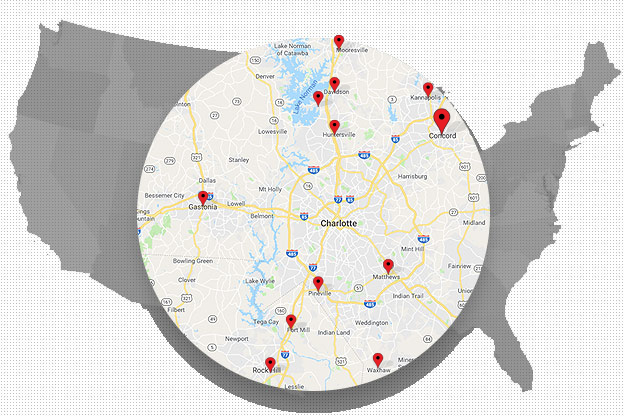The Do’s and Don’ts of Foundation Waterproofing

Many people do not appreciate how much of a priority avoiding water damage is.
In fact, FEMA has spent nearly $12 billion to track which parts of the United States are likely to experience flooding in a given year or not. On top of that, about 15 million American homes are potentially susceptible to flooding at any given time!
One of the most effective ways to protect your home from water damage is with foundation waterproofing. However, some people make mistakes while installing or managing their basement waterproofing. So what are these mistakes, and how can you avoid them?
On top of that, what are the things you should focus on doing to make the most of foundation waterproofing? Read on to learn all about the most important things to do and avoid doing when it comes to your home and potential water damage!
Do Regularly Clean Your Gutters
This first tip might surprise you. However, it can help to think of your home as similar to the human body. Everything is connected.
That means that problems in one area can place stress on others. And when you think about it, it makes a lot of sense that problems with gutters, which are for directing water around the exterior of your home, might have some relation to taking care of waterproofing for your foundation as well.
Although your gutters are theoretically supposed to redirect water, they also end up redirecting more substantial contaminants. The end result is that they inevitably become clogged over time. Once that happens, water is likely to start building up around your home when it is especially wet outside.
This can inevitably lead to water damage. Water damage is 100 times more efficient to prevent than it is to repair. That means that regularly cleaning your gutters before this happens is a priority.
Even if you try to clean up water damage after it has happened, you may find that your home ends up with chronic damage. In particular, it can be extremely difficult to fully eliminate mold and mildew once they have taken root in your basement.
Do Pay Careful Attention to Your Downspout
Your home also has a downspout to help direct water away from your home foundation. When the downspout isn’t working correctly, it can instead end up pushing water straight toward your home’s foundation.
Over time, this can lead to erosion and significant damage to your foundation. To make sure that this doesn’t happen, check your downspout.
If it is pointing at the wrong angle, it can lead to a lot of water damage down the line. It can be difficult to assess if your downspout is pointed at the correct angle or not. However, it is easier to assess this when it is raining.
That way, you can actually see where the water goes as it leaves your downspout. Carefully judge if your downspout is directing water toward your foundation. You should make sure that someone fixes it right away if it is.
Don’t Ignore Small Water Leaks
Water damage often starts in small ways. In fact, it starts in such small ways that you can technically ignore it and get away with it for a while. Unfortunately, that tempts people to do exactly this.
Ignoring small leaks is just asking for bigger leaks to develop. And whether your leaks are big or small, ignoring them is asking for chronic water damage to develop around your home’s foundation.
Don’t Try to Apply Water Damage Prevention Seals Yourself
Some people hear all about how amazingly effective water damage prevention seals can be. They get excited and try to install them on their own. Unfortunately, these advanced sealants can be more complicated than they look.
It is important to rely on professionals when it comes to trying to create a waterproof seal for your foundation. That does not mean that using sealants on your own does not have its place. Sometimes, it makes sense to apply a quick seal while you call the experts.
But don’t make the mistake of relying on a homemade seal to function in the long run.
Do Clean Up After Flooding to Avoid Unnecessary Damage
There are few things as stressful as flooding in your basement and around your foundation. Some people have to do incredible amounts of work to clean up afterward. Unfortunately, once they are mostly done with the job, they often decide to call it a day and live with the results.
However, it is important to clean up very thoroughly after flooding. Otherwise, your foundation and basement are likely to develop mold and mildew.
Do Find a Quality Provider of Effective Waterproofing Methods
Whatever types of waterproofing you are interested in, you should rely on the professionals when it comes to foundation maintenance and waterproofing installation.
Your home is an investment, and so is waterproofing your foundation. Although waterproofing your foundation is an investment with an upfront cost, it will more than pay for itself in the long term!
Understand the Do’s and Don’ts of Foundation Waterproofing
We hope learning about what you should and shouldn’t do when it comes to foundation waterproofing has been helpful for you. Many people never stop to think about how inevitable and recurring water damage can be. Taking the time to learn how to protect your home against water damage is an investment that will save you money in the long run.
To learn more about foundation waterproofing and what it might be able to do for you, feel free to reach out and get in touch with us here at any time!
Recent Posts
- How Crawl Space Encapsulation Benefits the Environment – An Expert Guide
- 6 Ways Professionals Keep Your Crawl Space in Top Shape
- Structural Repair Solutions for Crawl Spaces, Basements, and Foundations
- Essential Crawl Space Repair Tips Every Homeowner Should Know
- The Importance of Radon Mitigation: Ensuring a Safe Living Environment for Homeowners
Categories
- Basement Mold
- Basement Waterproof Foundation
- Basement Waterproofing
- Crawl Space Dehumidifier
- Crawl Space Encapsulation Cost
- Crawl Space Repair
- Crawl Space Waterproofing
- Encapsulation
- Foundation Repair
- Foundation Waterproofing
- French Drains
- Leaky Basement
- Mold Remediation
- Mold Removal
- Radon
- Slab Jacking
- Sump Pump
- Uncategorized
- Vapor Barrier
- Water Leak
- Waterproofing
- White Mold
Archives
- June 2024
- May 2024
- March 2024
- January 2024
- June 2023
- May 2023
- April 2023
- March 2023
- February 2023
- January 2023
- December 2022
- November 2022
- October 2022
- September 2022
- August 2022
- July 2022
- June 2022
- May 2022
- March 2022
- February 2022
- January 2022
- December 2021
- November 2021
- October 2021
- September 2021
- August 2021
- July 2021
- June 2021
- May 2021
- April 2021
- March 2021
- February 2021
- January 2021
- December 2020
- November 2020
- October 2020
- September 2020
- August 2020
- July 2020
- June 2020
- May 2020
- April 2020
- March 2020
- February 2020
- January 2020
- December 2019
- November 2019
- October 2019
- September 2019
- August 2019
- July 2019
- June 2019
- May 2019

